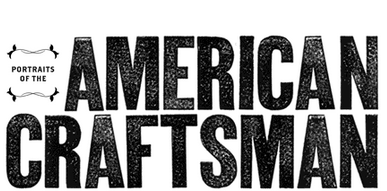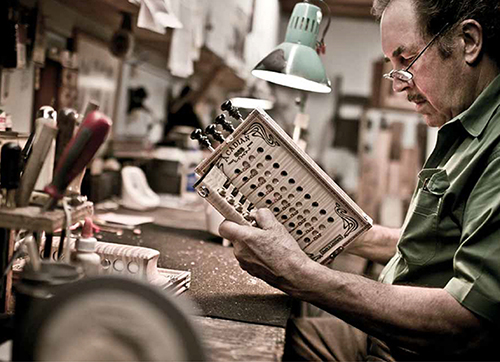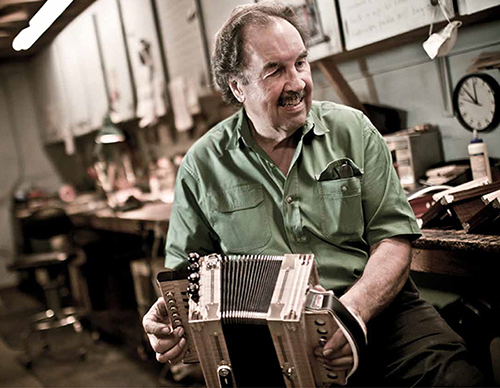Acadian Accordions: family, heritage, craftsmanship, and authentic Cajun music.
As a young Marc Savoy looked at the accordion he had made by hand, he knew he could do better. He had nursed the idea of building an accordion for years, ever since he was twelve years old, when his father bought him an accordion, a Hohner 114, from a department store. He cherished it, teaching himself to play a song right away. Growing up poor in rural Louisiana, such a thing was a luxury. “To me,” Savoy would later write, “owning an accordion was about as far-fetched as owning the moon.”
It was eight years later now, and he’d made his own accordion. He wanted to show it to Sidney Brown of Lake Charles, whom Savoy had heard made wonderful accordions, but he was too embarrassed. He had few tools and didn’t know much about woodworking. He threw the accordion in his father’s barbecue pit and watched it burn.
He did do better, of course. In 1960 he established the Savoy Music Center in Eunice, where he has spent more than half a century making some of the world’s finest, most authentic Acadian accordions. For Savoy, who today makes about six accordions a month, the making of an accordion connects him not only to the Cajun music of his heritage, but also to the people who’ve championed the instrument throughout history. (The instrument’s heritage, Savoy says, is actually Chinese.) Today Cajun and Creole musicians form his primary customer base.
Listen to Savoy talk about the process of connecting the disparate parts of the accordion—the reeds, the maple, the mother-of-pearl inlays, the buttons and springs and bellows—and you hear the detailed mind of an engineer. Unlike string instruments, Savoy says, the type of wood chosen makes no discernible difference in the sound. (That’s why you can order the type that you find most attractive, from walnut to maple to cypress to 150-year-old Louisiana red pine.) The reeds are handmade Italian reeds of the highest quality, and the bellows’ length helps determine the instrument’s sound potential.
The skill then comes in its tuning, an intricate process that electronic tuning devices simply can’t duplicate. The sound of a properly tuned Acadian accordion “pours out of the instrument and grabs your ear,” Savoy says.
Savoy and his family’s Cajun band still play on occasion, usually at Saturday morning jam sessions at the Savoy Center, where people can come hear them. The shows honor everything that Savoy holds dear: family, heritage, craftsmanship, and authentic Cajun music.
“What we have here in Acadian has always been the best,” he says. “We have the best food, the best lifestyle, and the most beautiful language. They belong to us.”


